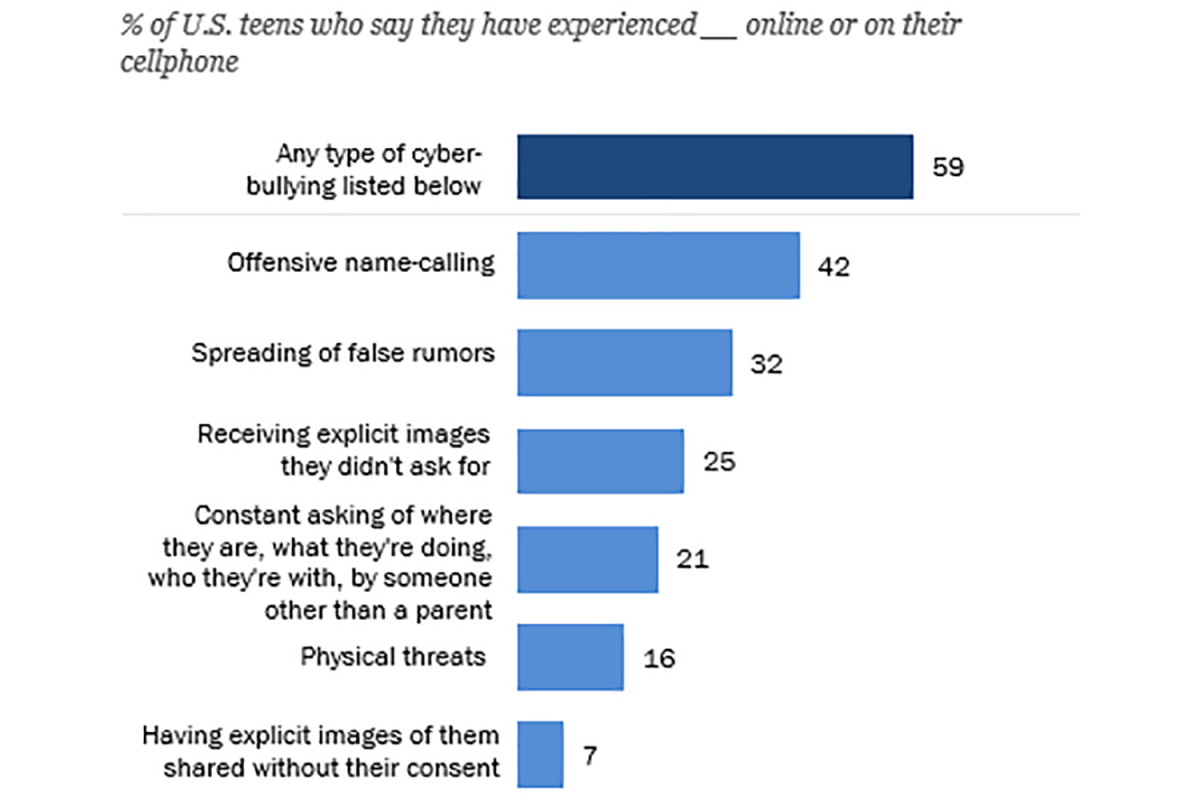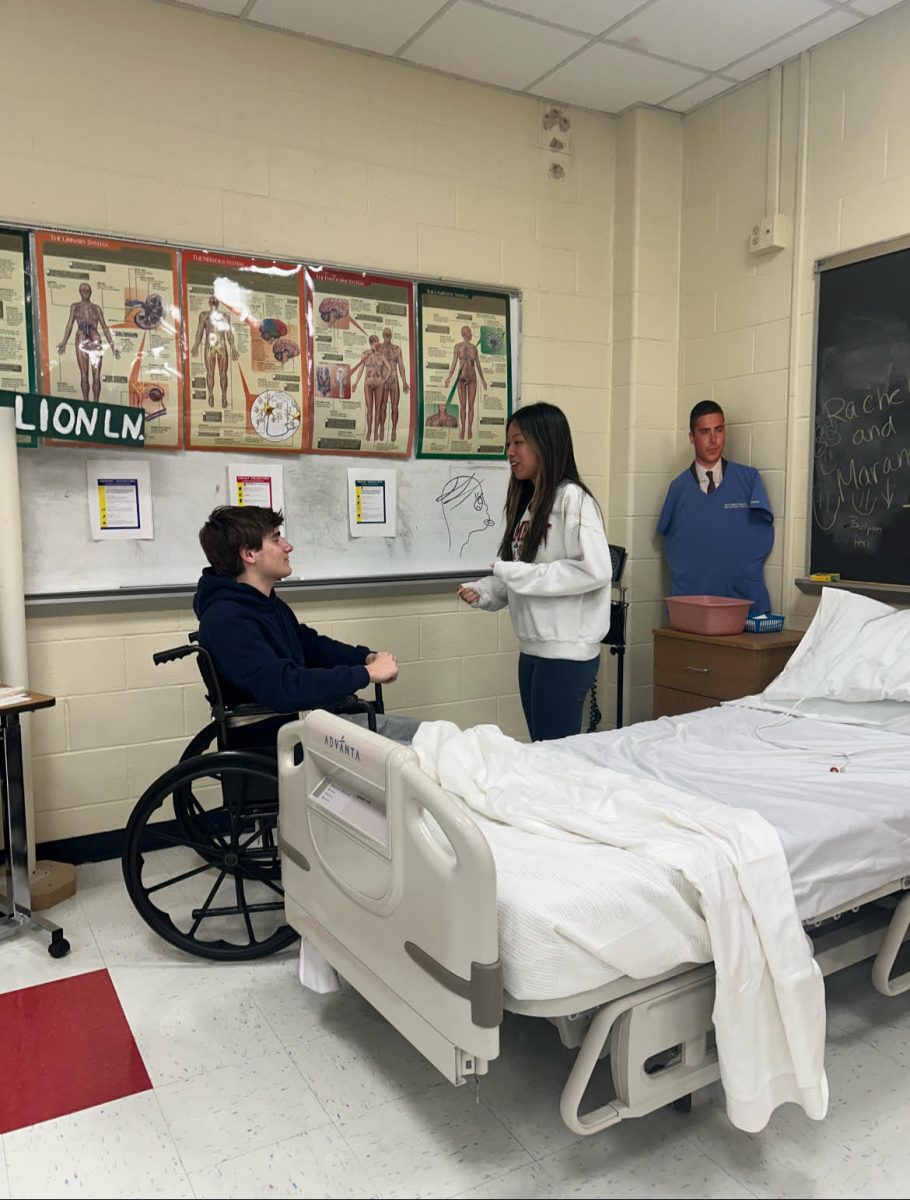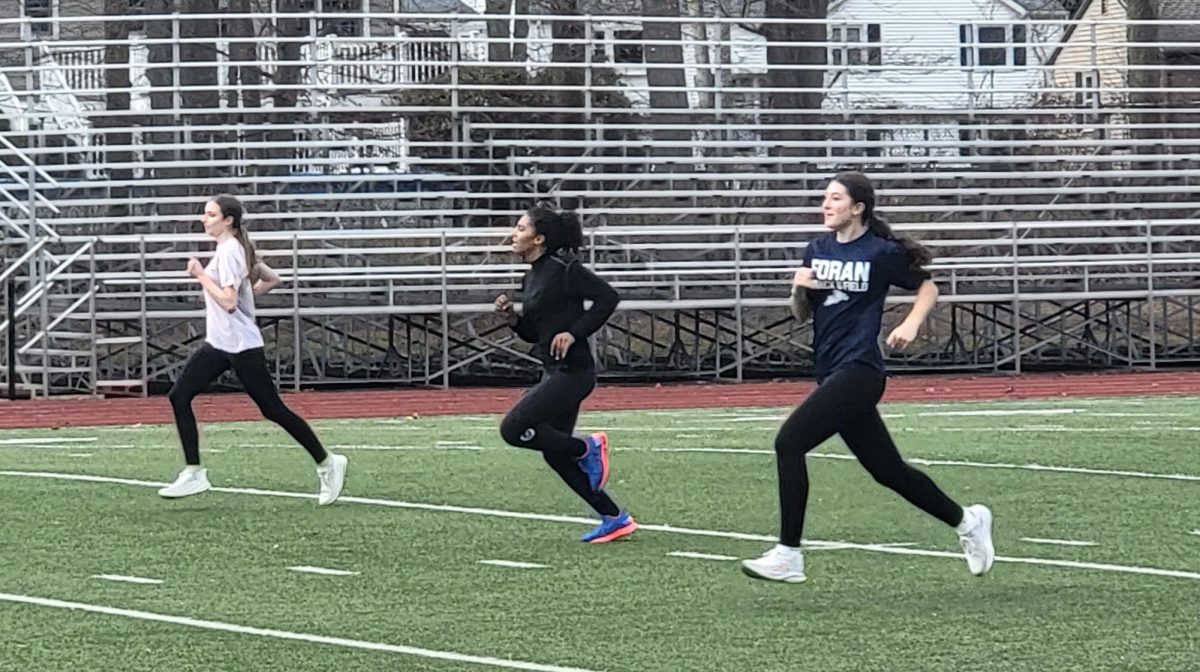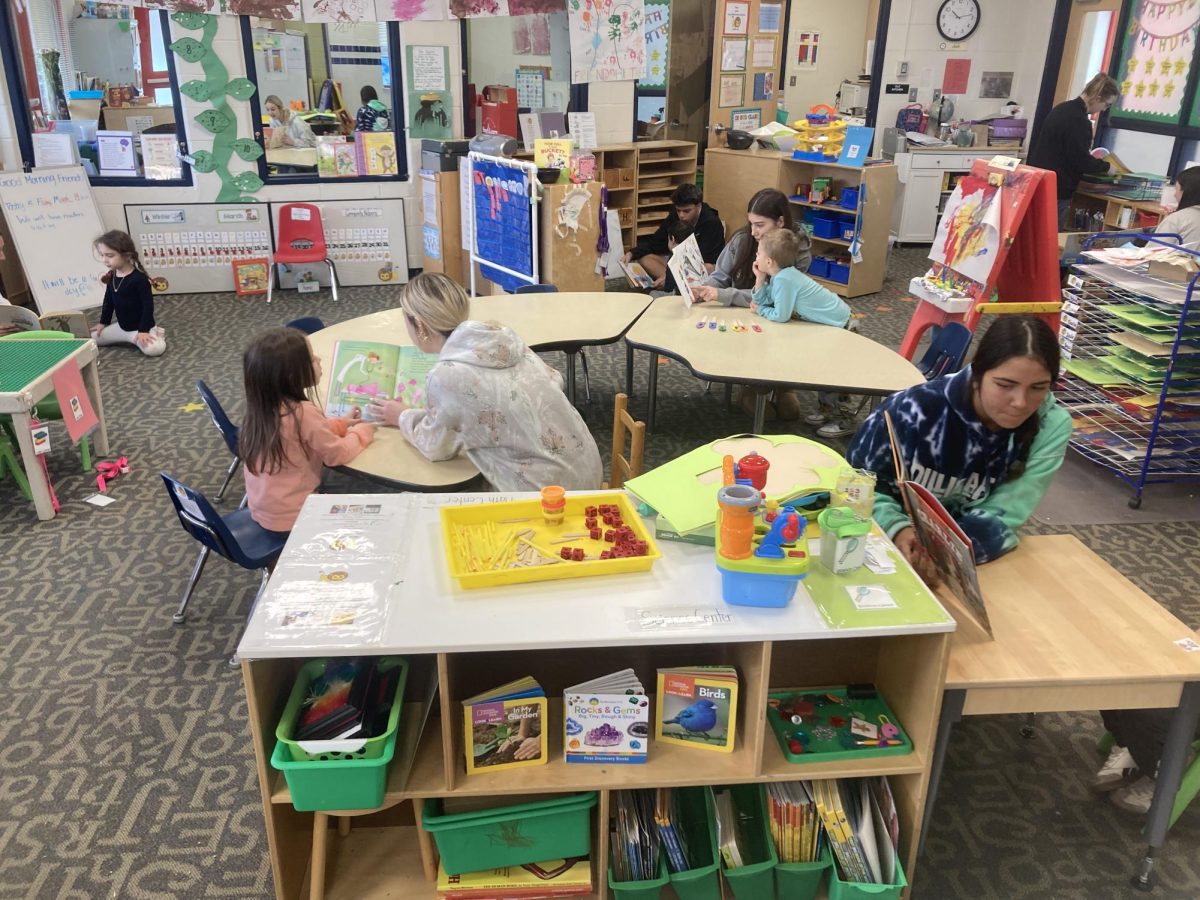According to The New York Times Upfront magazine, from the year 2011-2021, the number of teens and young adults with clinical depression has more than doubled, and San Diego State University psychology professor Jean Twenge believes this increase is due to the upsurge in social media usage.
Since the majority of high school students use social media, and Foran is no exception, it is important to know how to stay safe on social media and protect your mental health.
Senior Elle Philpott is the social media manager for Foran. Her job consists of promoting the Mane Street Mirror across several different platforms and engaging students in a way they’re familiar with (interactive videos, polls, story posts, etc.).
“On some of the platforms, specifically Instagram and TikTok, there has been a bit of a problem with hate comments or just not school-appropriate comments. Having public accounts opens the opportunity for people who don’t attend Foran to express opinions on our content,” states Philpott.
Privacy is a big factor that can aid in being safe on social media. Although having a private account can’t eliminate every single danger you’ll come across on social media, it can limit things like hate comments or strangers. Everyone who has access to your content must first be approved by you.
Teacher librarian Jaclyn Deloma has recommendations for both students and adults regarding privacy.
“You get things from these people that you don’t know all the time, and they’re phishing, that’s called phishing, like they’re just trying to get you in, trying to scam you or try to get you for other things so you have to be hugely careful of all of that.”
Limiting your time on social media can also be very effective in keeping yourself mentally stable. The Journal of Technology in Behavior Science conducted a study where individuals were asked to reduce their social media use by 15 minutes per day, and the results showed these individuals had a 50% improvement in sleep quality and 30% fewer depressive symptoms. (student quote)
“I think the depression, a lot of it is caused because if you are constantly on something, A, you’re not being engaged in the actual real world and B, you’re also in that comparison mode,” says DeLoma.
Spending time off social media or your phone completely is very beneficial. Instead of going on your phone before bed, you could read or journal. Students comparing themselves to what others put out on social media also poses a giant threat towards their mental health.
“Social media sometimes distracts me from my daily activities, and I find myself spending way too much time on platforms. It also makes people compare themselves to photoshopped images which can ruin someone’s mental health.” says sophomore Alexandra Capozzi.
The things users consume on social media are just fractions of the creator’s everyday life, and many times photos or content is edited. Students often will find themselves wondering why their life or appearance doesn’t look like what they see online, and this can lead to a negative view of themselves.
“Whatever you put out, it never goes away. Even if you think you have deleted it, it can always be found. You have to make sure you’re very wise about the choices you make with what you’re posting because there are severe consequences and severe repercussions.” quotes DeLoma.
Social media is constantly growing and becoming a bigger part of the world we live in everyday; making safe choices is key to thriving on social media and in your real life.










Adolf | Mar 13, 2025 at 5:26 AM
You have written a very nice article, I think that this is really important for the Teenagers, so they can reflect theire behaiviour and haste on the Social networks.
Anonymous | Mar 13, 2025 at 4:25 AM
The Text by Makayla Creslo and Shea Pangu was published on March 27th 2024 and deals with the consequences of social media on your mental health.
It has a statistic in it, which shows the different number of teens who have experienced cyber bullying of all kinds.
The arguments describe different examples and suggestion for improvement.
To sum it all up I think the text describes the cyber bullying situation very well and is also maybe a wake up call for some people.
Anonymous | Mar 13, 2025 at 4:24 AM
Thanks for all the Information your article gave me, I think the most shocking point for me was, that by reducing your social media use, by 15 minutes it can lead to having a 50% improvement in sleep and 30% fewer depressive symptoms. I will definetely take some of these advices for my personal life. Another point I can agree on is, that when I am spending time on social media I am comparing myself to other girls on social media. As well as how I am spending way to much time on social media, but once I leave f. ex. TikTok I will forget everything I watched and feel bad for spending that much time there.
Anonymous | Mar 13, 2025 at 4:24 AM
I will definetely take some of these tadvices fpr my personal live. I have to admit that my own social media use cannot be called healthy at all. But even if it takes some self discipline to controle my use i think it will improve my life a lot. So thanks for informing me that well. I agree on all of your points and the webside ist realy good.
So guys keep going, your making great articles and i support you.
Sorry my english is not that good and for all of my mistakes, i am not a native 🙂
YixiYo | Mar 13, 2025 at 4:23 AM
I liked how you clearly show the disadvantages of social media and how they can effected especially young people. I think the problem with social media increase, and it’s really important to teach young people that it is easy to spread fake news on social media and that you shouldn’t believe everything what is on social media. I liked also that you say something about the body shaming, because I think it is a big problem for a lot of young people, that they think only the “prefect body” makes you happy.
I really liked your article, because you mention the problems about social media clearly, which can help young people to understand what is going on, on social media.
Lilly | Mar 13, 2025 at 4:22 AM
I really like how you write from a perspective I can completely relate to ,we use it and we know it’s kinda bad but we just can’t stop. Your tips are realistic and can really lead to a better of it so it improves our lives with social media. It’s important to mention what you said that social media is fake and the photos are photoshopped and the influencers just show the aesthetic interesting parts of their life’s. The article gives a great view on social media and mentions the most important facts to know about it, all in all its great to inform you and to give you some tips if you struggle with the unhealthy use of social media.
Anonymous | Mar 13, 2025 at 4:22 AM
I love how you talk about the impact that social media has on depression and bullying
Martin | Mar 13, 2025 at 4:22 AM
I can relate to the text. Social Media can have many negative influence on your live. As an example I would take fear of missing out I already experienced myself.
Elias | Mar 13, 2025 at 4:21 AM
I think Social Media is a big Problem. The more people use Social Media the bigger the Problem becomes. If all Ur Friends use Social Media the propability of you also going to use Social Media is much higher then when all Ur Friends dont evan know what Social Media is. This leads to fear of missing out and you will use the App more often because ure afraid of missing something.
Klaus | Mar 13, 2025 at 4:20 AM
In my opinion anyone that decides to poste something on social media should be aware of the fact that they definitely will be hate comments under their posts. You can’t avoid bad opinions online due the pure mass of people which are able to comment. Therefore you can’t expect persons comment to be nice and meaningful. However it’s still important that the majority of the comments stays positive and insulting comments are the exception.
Anonymous | Mar 13, 2025 at 4:19 AM
I think you have some really good points on how especially Young people do on Social Media. Im personal use Social Media very often and now know how to use it Safe. I also Creator content and Til now Nobody ever hated me, probably because I am posting about my Sport and They dont campare to me, because I Play lacrosse and itsnnot really populär in Germany.
Anonymous | Mar 13, 2025 at 4:19 AM
I think it is a good article, it has good important infortmation, the article shows important tipps how to be Safe on Social Media.
Klaus | Mar 13, 2025 at 4:18 AM
For me Personals it is pretty obvious hat the Social Media Platform with the Most hate should be avoided espescially by people with Health Problems Like for example Instagram shoeld be censured but it is pretty funny I have to say
Anonymous | Mar 13, 2025 at 4:18 AM
I really liked the insight into these problems of the young people I myself also limit my time on social media and more people who
Just started with this should to. Keep up the good work.
Anonymous | Mar 13, 2025 at 4:16 AM
Good article it was very informative and well written. It had good tips on how to be safe on social media.
Anonymous | Mar 13, 2025 at 4:14 AM
Thanks for all these advices. I have to say i realy agree on all of your points and think that your main ideas in changing and improving the use of social media are very useful land can help a lot regarding to health.